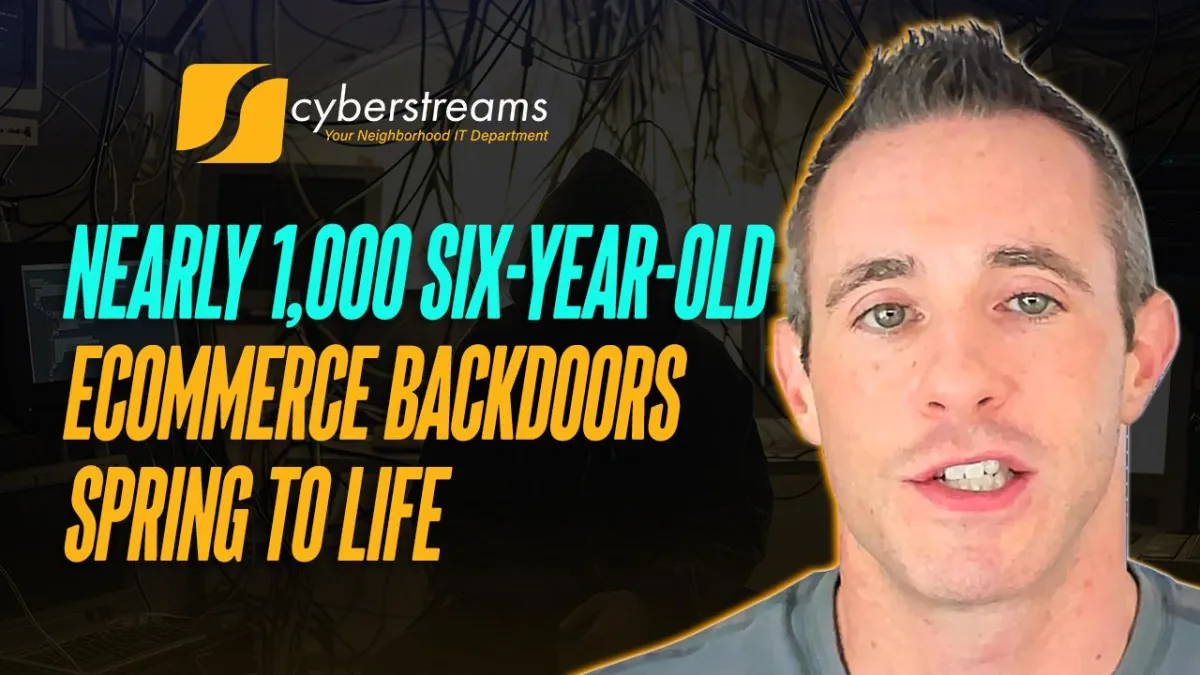
Nearly 1,000 Six-Year-Old eCommerce Backdoors Spring to Life
At CyberStreams, staying ahead of emerging cybersecurity threats is our top priority. Recently, a startling security incident has come to light that serves as a wake-up call for eCommerce businesses and beyond: nearly 1,000 six-year-old backdoors embedded in eCommerce websites have been activated, exposing countless online stores to significant risk.
The Incident: A Dormant Supply Chain Attack Awakens
This attack is a textbook example of a sophisticated supply chain breach. Malicious backdoors were stealthily embedded within 21 Magento extensions, hidden inside license verification files, lying dormant for six years. Once triggered, these backdoors compromised around 1,000 eCommerce websites, giving attackers access to payment card data and other sensitive customer information.
What makes this incident particularly alarming is its longevity and stealth. Rather than a quick smash-and-grab attack, cybercriminals leveraged trusted third-party software to infiltrate and persist within the victims’ ecosystems for years, gathering valuable data without detection.
The Bigger Picture: Cyberattacks Evolve into Long-Term Infiltrations
The Magento backdoor incident is part of a broader shift in cybercrime tactics. Attackers are increasingly favoring prolonged, covert infiltrations over direct, immediate breaches. This strategy relies on exploiting the software supply chain, an ecosystem built on third-party code, open-source components, and APIs. When a single dependency is compromised, it can threaten the entire infrastructure, turning trusted software into a Trojan horse.
This kind of espionage at the code level reflects the growing complexity and interconnectedness of modern software. As organizations become more dependent on third-party integrations, their attack surface expands, making supply chain security a critical concern.
What This Means for Your Business
This attack serves as a stark reminder that cybersecurity is no longer just about preventing isolated incidents. The risks embedded in third-party software require continuous vigilance and proactive defenses. While this breach focused on eCommerce platforms, the lessons extend to any business with an online presence. Malicious plugins or hidden injections can jeopardize even the most seemingly secure websites.
Three Key Takeaways and Next Steps
Validate Extensions & Downloads: Only obtain third-party software, plugins, and extensions from verified vendor sources. Keep all components updated and patched regularly to minimize vulnerabilities.
Implement a Web Application Firewall (WAF): A WAF acts as a shield against unauthorized, malicious traffic attempting to interact with your website, providing an essential layer of defense.
Monitor Website Security Continuously: Use website security scanners to detect known malicious code. These tools function like antivirus software for your site, enabling rapid remediation if threats are detected.
Conclusion
The activation of nearly 1,000 six-year-old Magento backdoors underscores the evolving nature of cyber threats from quick, high-profile hacks to stealthy, long-term supply chain infiltrations. As businesses increasingly rely on third-party software, securing these software supply chains is no longer optional but critical. By validating extensions, deploying web application firewalls, and continuously monitoring website security, organizations can better protect themselves against these hidden threats and safeguard their customers’ sensitive data. Staying informed and proactive is the best defense in this ever-changing cybersecurity landscape.
